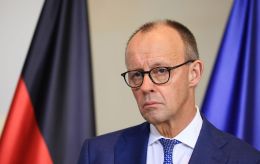Scholz against all: Why Germany to hold early elections and what Ukraine should expect
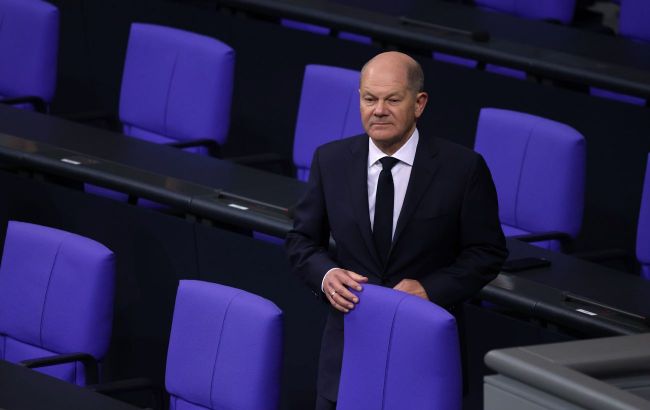 Olaf Scholz became chancellor without a coalition (photo by Getty Images)
Olaf Scholz became chancellor without a coalition (photo by Getty Images)
The crisis in the German government has reached its peak. Chancellor Olaf Scholz announced the collapse of the so-called traffic light coalition, and the country is on the verge of early Bundestag elections. Read more about this, Ukraine's role in this crisis, and what to expect from the political developments in Germany in RBC-Ukraine article.
Contents
- Coalition collapse and new elections: what's happening in Germany
- Why coalition collapsed and what Ukraine has to do with it
- Party ratings and what coalition will look like after elections
- Will Germany cut aid and what should Ukraine expect?
Coalition collapse and new elections: what's happening in Germany
Just hours after Donald Trump won the US election, Germany was plunged into political instability. The result stunned German politicians, who fear that his tariff measures will hit Europe's first economy. Many had hoped this prospect would rally the so-called traffic light coalition, but it turned out differently.
It got its name because of the colors of the three parties red Social Democrats (SPD), the yellow Free Democrats (FDP), and the green (Union 90/Greens). For three years, they have held 412 of the 736 seats in the Bundestag, with the FDP holding only 92 seats.
On Wednesday, party bosses met in an attempt to resolve the months-long dispute. The trigger for the acute conflict is the 2025 budget and measures to improve the economy. The leader of the Free Democrats and Finance Minister Christian Lindner called for spending cuts, tax cuts, and a slowdown in the green transition. He was even ready to support the budget in exchange for early elections, but the chancellor decided to fire him. The last straw was the minister's refusal to support Scholz's plan.
“All too often, Minister Lindner has blocked laws in an inappropriate manner. Too often he has engaged in petty party-political tactics. Too often he has broken my trust...The Finance Minister shows no willingness to implement this proposal for the good of our country. I no longer want our country to have to continue to suffer this kind of behavior,” the Chancellor says.
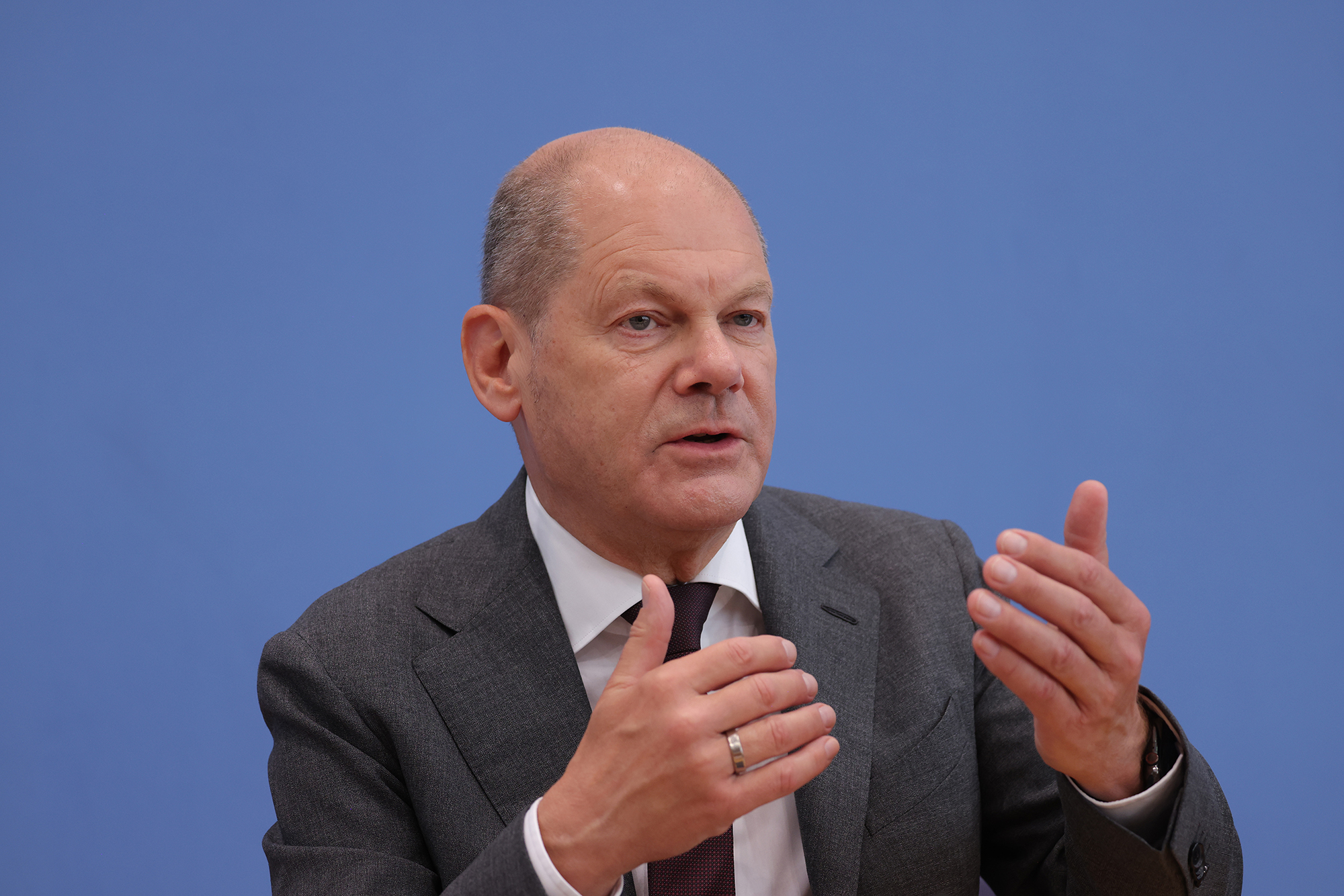 Olaf Scholz fired Finance Minister Christian Lindner and the Free Democratic Party left the coalition (photo by Getty Images)
Olaf Scholz fired Finance Minister Christian Lindner and the Free Democratic Party left the coalition (photo by Getty Images)
With the opening of the parliamentary session in the new year, he will ask the Bundestag to confirm the vote of confidence. It is planned to be put to a vote on January 15, and if he does not receive enough votes, which is extremely unlikely, the elections will be held no later than March.
Currently, Scholz is trying to reach an agreement with the leader of the opposition Christian Democratic Union (CDU), Friedrich Merz, to get important laws through the Bundestag. The latter is ready to cooperate but asks that the vote be put to a vote next week. The day before, they tried to agree on a final date but failed to reach an agreement.
With the FDP's withdrawal, the so-called traffic light coalition collapsed. Following Lindner, two more ministers left the government. One representative of the Free Democrats, Volker Wissing, left the party and retained the post of Minister of Transportation. Jörg Kukies (SPD), the State Secretary of the Chancellor's Office, will become the Minister of Finance.
At the same time, Lindner blames Scholz for the collapse of the coalition. Because he tried to force him to violate the constitutionally enshrined limit on budget expenditures, known as the debt brake.
“Olaf Scholz has long failed to recognize the need for a new economic awakening in our country. He has long played down the economic concerns of our citizens,” he said.
Thus, Germany is on the verge of early elections. According to the co-chairman of the Greens, Vice Chancellor and Minister of Economy Robert Habeck, a decision on the next coalition will have to be made in the spring. President Frank-Walter Steinmeier says he is ready to dissolve the Bundestag.
Why coalition collapsed and what Ukraine has to do with it
The plan mentioned by the Chancellor consists of several points. It includes measures to stabilize pensions by fixing them at 48% of average earnings. This should be a guarantee for future pensioners but will cost younger savers more. It is estimated that the costs could reach 500 billion euros by 2045.
Scholz also proposes tax breaks. The basic rates should be adjusted for inflation so that everyone has more net income (currently, wage growth is being eaten up by inflation). Another item includes freezing energy tariffs with €1.3 billion in subsidies and a €400 million package for the auto industry.
The fourth point directly concerns Ukraine. According to the Chancellor, the reality is that Russia's aggressive war will have a profound impact on Germany in the coming years.
The Chancellor says that support for Ukraine remains important, clarifying that he is not prepared to finance their support and defense investments at the expense of pensions or healthcare. He emphasized that he does not force citizens to choose between investing in security and in jobs or a modern economy, as he considers this contradiction dangerous.
To this end, the federal government has budgeted 12.5 billion euros for 2025. But Scholz proposes to provide additional billions. This would require exceeding the debt limit, which can only be done in an exceptional situation. In his opinion, the urgent need to support Ukraine is a good reason.
Reuters sources say that Scholz wanted to increase the support package by 3 billion euros and finance it by suspending the debt brake. Lindner did not agree to this. Yesterday he said that his party did not hesitate in supporting Ukraine. And he allegedly even offered to send long-range Taurus missiles. But the chancellor categorically rejected this opportunity and showed the minister the door.
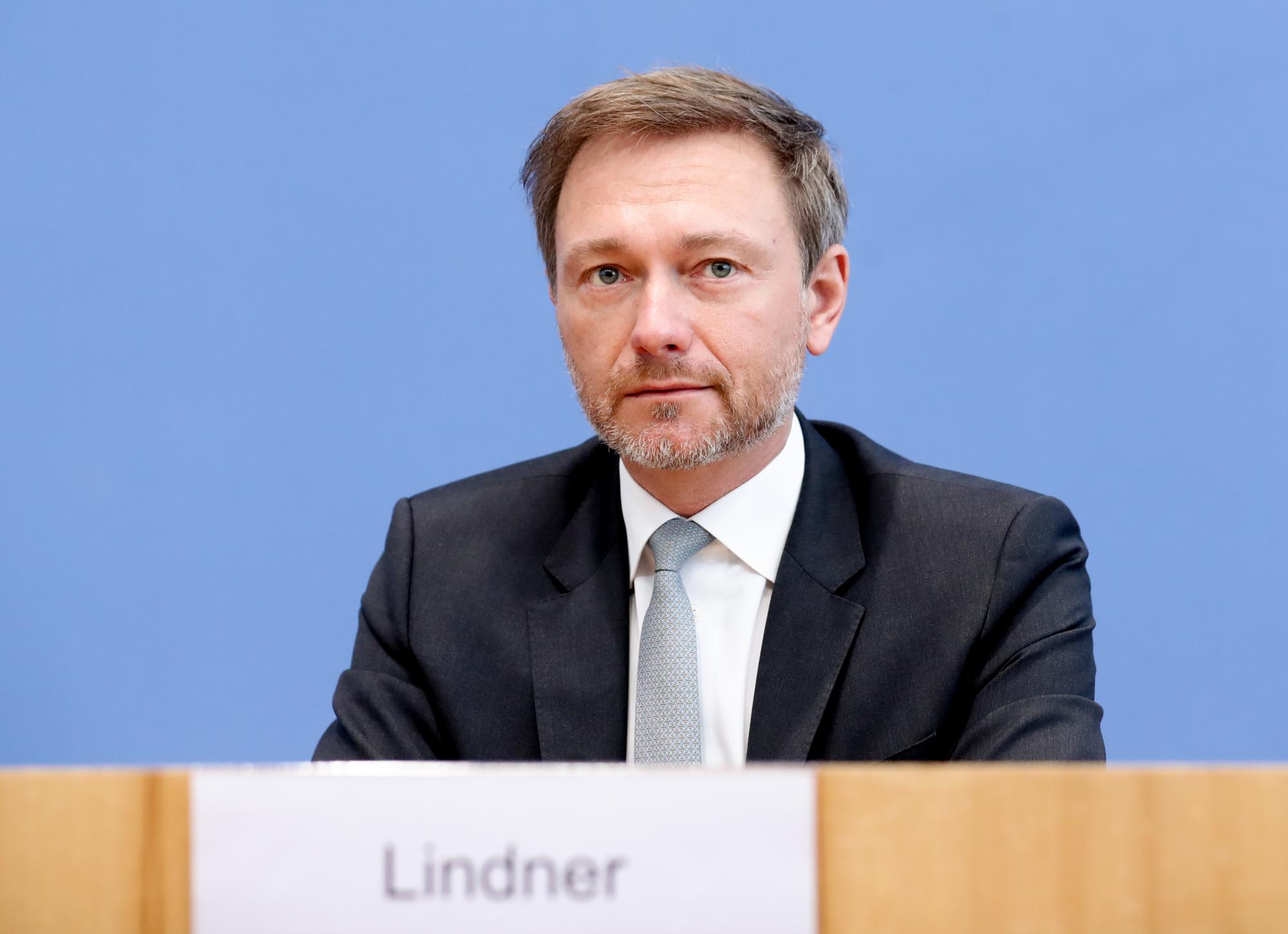 FDP leader Christian Lindner rejected Scholz's budget plan and the package of measures, including additional billions for Ukraine (photo by Getty Images)
FDP leader Christian Lindner rejected Scholz's budget plan and the package of measures, including additional billions for Ukraine (photo by Getty Images)
It is clear that it was not the issue of Ukraine that led to the collapse of the coalition. It was merely a consequence of what was already easily predictable, namely, the politicization of the aid issue.
“Ukraine itself is not to blame. But defense and military aid cost money. Although there is a fairly high level of support in German society, there is still no far-sighted consensus. Accordingly, we need to prove why we should support Ukraine,” explains Viktor Savinok, a political scientist and senior analyst at the Zygmunt Wojciechowski Western Institute in Poznan, Poland.
For a long time, Scholz did not do this, and in recent months, he seems to have been doing the opposite, saying that he wants to become a chancellor of peace.
“Now he has pulled out the Ukrainian card and started saying that it is necessary to remove the debt brake due to the war. On the one hand, what Russia is doing, its hybrid actions and disinformation in Germany threatens national security. On the other hand, judging by the chancellor's logic, he decided to play the Ukrainian card against the Free Democrats and the CDU. He needs the latter to agree to increased spending and elections in March,” he explains to RBC-Ukraine.
Party ratings and what coalition will look like after elections
The government crisis has come at a critical time. Germany's economy is stagnating, its infrastructure is aging, and the level of training and equipment of the army raises questions.
All of this could provoke an already growing disillusionment with the mainstream parties in favor of populist movements. For example, the far-right Alternative for Germany (AfD) has 78 seats in the Bundestag, but in regional elections in Thuringia and Saxony, it showed historic results. With a national rating of 17%, it is currently the second most popular party, which, among other things, planned to nominate a candidate for the post of federal chancellor.
Its ideology is against European integration and migrants and is often called neo-fascist. Alternative for Germany is almost openly funded by the Kremlin and has a dubious reputation as a puppet of Moscow. Berlin MP Gunnar Lindmann supports Russian aggression and spreads fakes about the war in Ukraine. And Tino Chrupalla, the leader of the European Union, is in favor of restoring the Nord Stream pipeline.
Despite its fairly high rating, this party has no chance of joining the next government. This is because the main political forces do not want to work with it, either at the federal or state level.
“Therefore, it will not come to this (a coalition with the AfD - ed.). And Scholz's idea to hold early elections in March may be related to trying to at least take a little bite out of the electorate and bring the SPD to second place,” Savinok says.
Over the past three years, all three parties of the so-called traffic light have slipped dramatically. According to polls, the SPD has slipped from 26% to 16%, the Greens from 23% to 10%, and the VDP, with its current 4%, is at risk of not breaking the 5% threshold.
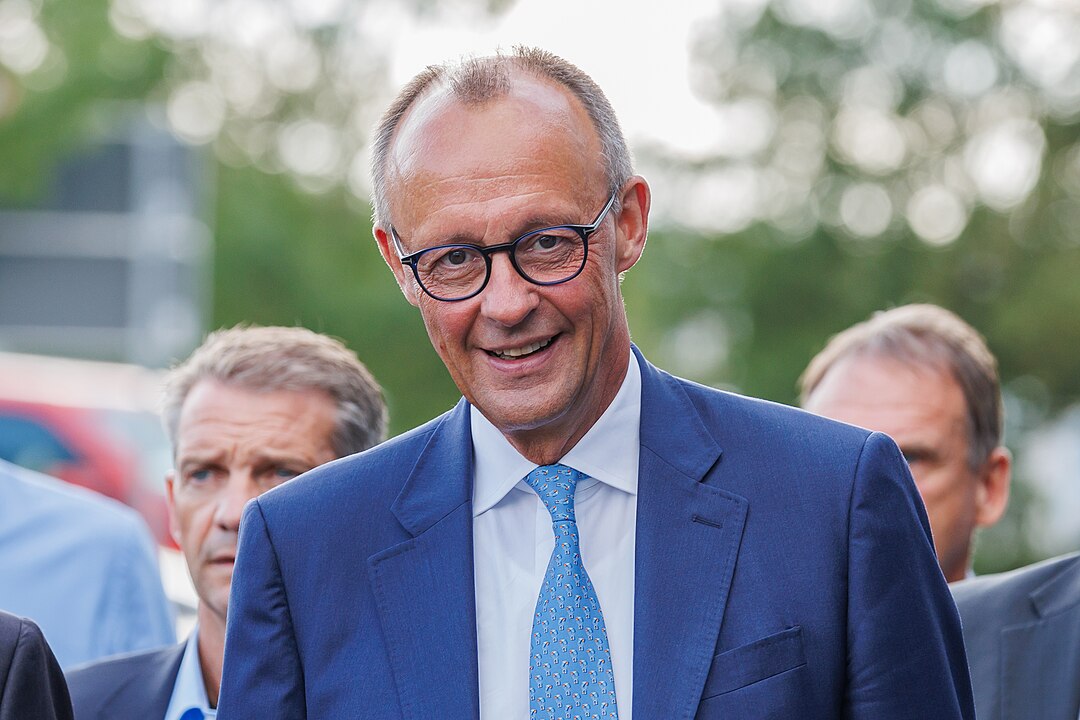 Friedrich Merz's CDU will win the next election and he will be the main contender for the chancellorship (photo by wikimedia.org)
Friedrich Merz's CDU will win the next election and he will be the main contender for the chancellorship (photo by wikimedia.org)
The center-right CDU is in first place with a clear lead. Polls give the Christian Democrats 32% of the vote, so they will likely form the new government headed by Friedrich Merz. As for Ukraine, he criticizes Scholz's indecision and says he is ready to hand over the Taurus if Russia does not stop hitting civilian targets.
It is difficult to predict what the next coalition will look like. But Savinok is sure that two options are most likely.
“It could be a coalition of the CDU with a very slimmed-down SPD. But even in this scenario, there may not be enough votes and a third party will need to be involved. In this case, the involvement of the Greens seems to be a plausible scenario,” the source says.
The second option is a coalition of the CDU and the Greens. But then the Christian Democrats need to stop their aggressive rhetoric against the Greens, otherwise they may not get enough votes to get back into government.
The Free Democrats probably do not claim to be a more or less significant force. They have been teetering on the edge of the electoral threshold for a year now. Christian Lindner's demarche is likely aimed at somehow making up 1-1.5% in 60 days after the Bundestag fails the vote of confidence and gets into the next parliament.
And in any case, in all likelihood, the anti-Ukrainian right-wing radicals from Alternative for Germany and the left-wing populists from the Sahra Wagenknecht Alliance, which is also running for parliament, will remain in opposition.
Will Germany cut aid and what should Ukraine expect?
The German government regularly supplies Ukraine with new aid packages. The current crisis, as well as the period before and after the elections, raises concerns about its rhythmicity.
However, as long as there are long-term contracts and agreements based on the funding available this year, supplies will continue into 2025, emphasizes Viktor Savinok.
“The problem is that it will be difficult for the government to respond to urgent measures. We have already seen how the increase in aid by 400 euros for additional air defense systems was passed with a squeak in September. The coalition agreed to it after the case was finally exposed in the press. And now it will simply be harder to respond to urgent requests,” the political analyst says.
According to Reuters, even if the budget for 2025 is not adopted on time due to the collapse of the coalition government, Germany will be able to provide most of the promised 4 billion euros.
It is also difficult to say for sure whether the next coalition will help Ukraine more decisively, for example, in terms of transferring qualitatively new types of weapons. Germany is entering a period of uncertainty, and no one knows what the election results will be.
It is possible that sociology does not fully reflect the situation, as German society is generally dissatisfied with the current policy. Judging by the trust in the so-called traffic light coalition, we should rather talk about an anti-rating: only 15% approve of the work of the SPD, FDP, and Greens. For comparison, the last government of the CDU and the Social Democrats was trusted by about 30%.
“Dissatisfaction is very high, and this may affect the low turnout. Therefore, it is likely that coalition talks after the March elections will be delayed. As the experience of the last government of Angela Merkel shows, they can be delayed even for six months,” Savinok adds.
Although Ukraine remains in Berlin's priorities, the news of the crisis in the second largest donor country is worrying. However, there are no serious reasons for concern, although this does not mean that they will not appear later. What is clear is that the degree of uncertainty for Ukraine has increased dramatically. And it is alarming how quickly this happened after the US election, which will lead to a radical change in the country's course.
Sources: statements by German Chancellor Olaf Scholz, former Finance Minister Christian Lindner, Reuters, Politico, DW, FAZ, and tagesschau.de, comments by Viktor Savink, Senior Research Fellow at the Zygmunt Wojciechowski Western Institute in Poznan.



